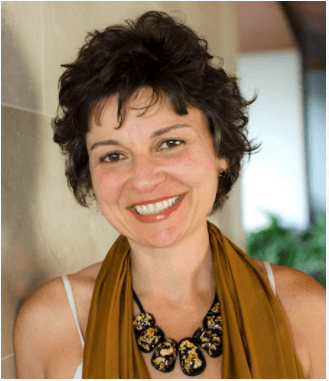
Sylvie Rokab is an acclaimed filmmaker whose love of the natural world led her on an odyssey to create the award-winning film, Love thy Nature. She is also a nature therapy guide, a growing field that integrates nature education with the holistic benefits of forest therapy in areas including personal coaching, team-building, and counseling. Sylvie, who will be leading Forest Bathing: Deepening Connection with Mother Nature, Each Other and Ourselves at Esalen next spring, shares what inspires her about this emerging practice.
Esalen News: What sparked your passion to become a nature therapy guide?
Sylvie: Ever since I was a kid growing up in Rio de Janeiro, the forests and beaches were my places of healing, play, exploration, and wonder. I loved sharing the beauty, artistry, and genius of nature with others. This is what led me to eventually become a nature cinematographer and filmmaker.
More recently, since the premiers of my film Love Thy Nature, audience members from all walks of life have shared their feelings of being burned out, overwhelmed, and deprived of connection with nature, others, and themselves. Nature guiding then became the organic evolution of my work as a filmmaker.
Esalen News: Can you share what kind of impact Love Thy Nature has had on audiences?
Sylvie: I’ll share some viewer feedback that came like arrows to my heart: A family of five approached me after a screening in San Francisco, and the father said the film touched a deep chord in him. He was emotionally moved, so his wife continued with, “It helped us realize how much we miss spending time in nature. We decided to make it a priority and plan trips with the kids.” A university student in Rio de Janeiro said that she had abandoned her biology major because she felt hopeless for nature’s survival, but the film gave her hope and now she wants to go back to biology and volunteer for a non-profit to help restore the Atlantic rainforest.
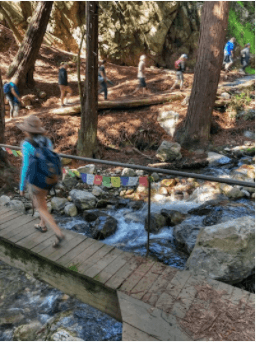
Esalen News: Will you tell us more about the Japanese tradition of shinrin yoku?
Sylvie: The term shinrin yoku (loosely translated as “forest bathing”) was coined in Japan in the early 1980s when the government created an initiative to study the effects of nature immersion on human health. Japanese scientists concluded that compounds released by trees — called phytoncides — can have a healing effect on some human illnesses. Other studies have shown that spending time in nature can improve emotional and mental health by reducing anxiety, preventing depression, and even improving cognition.
So, an estimated two million people practice shinrin yoku in Japan every year. Inspired by this practice, Amos Clifford created the Association of Nature and Forest Therapy Guides and Programs in the U.S. to train guides like myself around the world to help others experience the healing benefits of nature immersion.
Esalen News: What excites you about offering Forest Bathing at Esalen?
Sylvie: While forest bathing can be beneficial nearly anywhere, a workshop at Esalen makes it extraordinary. For one thing, nature here is truly breathtaking, including the different sources of water that converge — ocean, hot springs, and fresh water. The geological history is fascinating as well. It is my honor to be bringing nature therapy to this magnificent land.
Learn more about Sylie's workshop Forest Bathing: Deepening Connection with Mother Nature, Each Other and Ourselves, taking place at Esalen May 10-12, 2019.
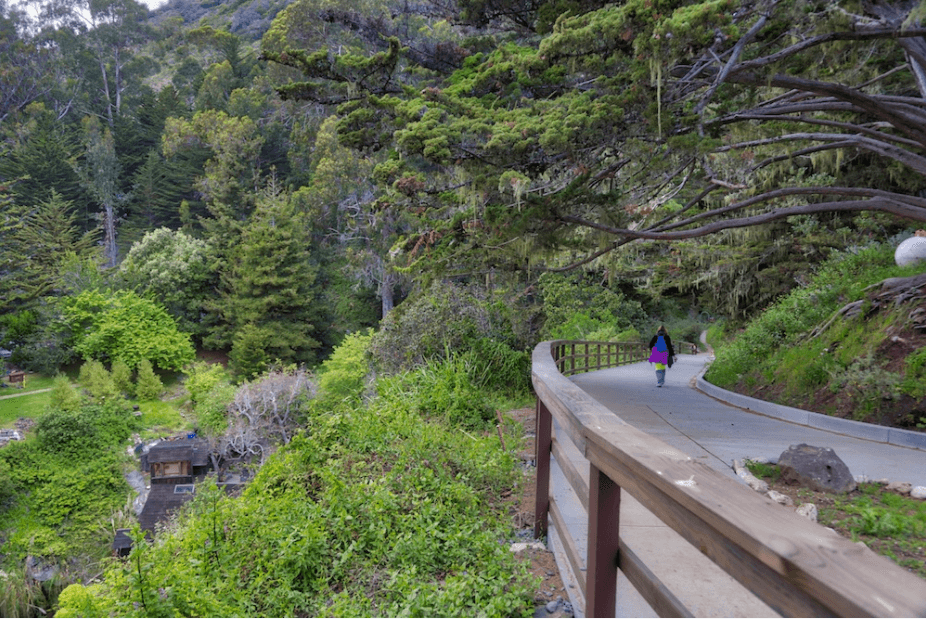
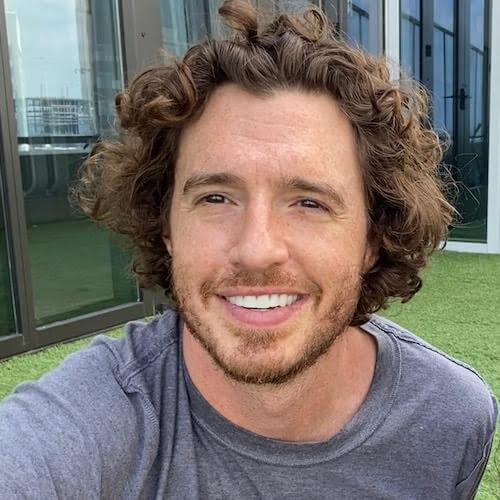
“Remembering to be as self compassionate as I can and praying to the divine that we're all a part of.”
–Aaron
“Prayer, reading, meditation, walking.”
–Karen
“Erratically — which is an ongoing stream of practice to find peace.”
–Charles
“Try on a daily basis to be kind to myself and to realize that making mistakes is a part of the human condition. Learning from our mistakes is a journey. But it starts with compassion and caring. First for oneself.”
–Steve
“Physically: aerobic exercise, volleyball, ice hockey, cycling, sailing. Emotionally: unfortunately I have to work to ‘not care’ about people or situations which may end painfully. Along the lines of ‘attachment is the source of suffering’, so best to avoid it or limit its scope. Sad though because it could also be the source of great joy. Is it worth the risk?“
–Rainer
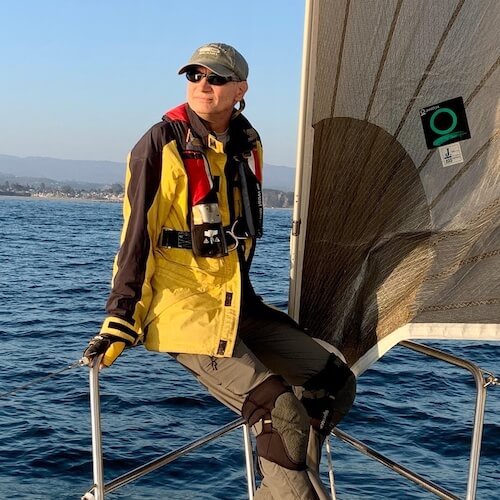

“It's time for my heart to be nurtured on one level yet contained on another. To go easy on me and to allow my feelings to be validated, not judged harshly. On the other hand, to let the heart rule with equanimity and not lead the mind and body around like a master.”
–Suzanne
“I spend time thinking of everything I am grateful for, and I try to develop my ability to express compassion for myself and others without reservation. I take time to do the things I need to do to keep myself healthy and happy. This includes taking experiential workshops, fostering relationships, and participating within groups which have a similar interest to become a more compassionate and fulfilled being.“
–Peter
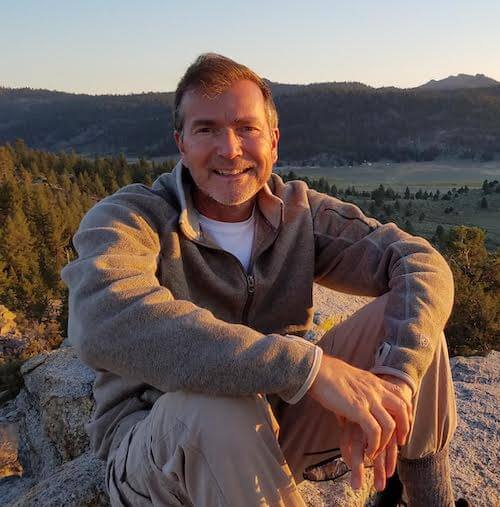
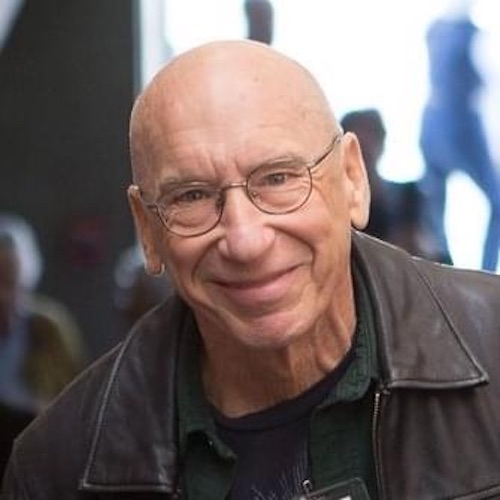
“Self-forgiveness for my own judgments. And oh yeah, coming to Esalen.”
–David B.
“Hmm, this is a tough one! I guess I take care of my heart through fostering relationships with people I feel connected to. Spending quality time with them (whether we're on the phone, through messages/letters, on Zoom, or in-person). Being there for them, listening to them, sharing what's going on with me, my struggles and my successes... like we do in the Esalen weekly Friends of Esalen Zoom sessions!”
–Lori

“I remind myself in many ways of the fact that " Love is all there is!" LOVE is the prize and this one precious life is the stage we get to learn our lessons. I get out into nature, hike, camp, river kayak, fly fish, garden, I create, I dance (not enough!), and I remain grateful for each day, each breath, each moment. Being in the moment, awake, and remembering the gift of life and my feeling of gratitude for all of creation.”
–Steven
“My physical heart by limiting stress and eating a heart-healthy diet. My emotional heart by staying in love with the world and by knowing that all disappointment and loss will pass.“
–David Z.
Today, September 29, is World Heart Day. Strike up a conversation with your own heart and as you feel comfortable, encourage others to do the same. As part of our own transformations and self-care, we sometimes ask for others to illuminate and enliven our hearts or speak our love language.
What if we could do this for ourselves too, even if just for today… or to start a heart practice, forever?

Sylvie Rokab is an acclaimed filmmaker whose love of the natural world led her on an odyssey to create the award-winning film, Love thy Nature. She is also a nature therapy guide, a growing field that integrates nature education with the holistic benefits of forest therapy in areas including personal coaching, team-building, and counseling. Sylvie, who will be leading Forest Bathing: Deepening Connection with Mother Nature, Each Other and Ourselves at Esalen next spring, shares what inspires her about this emerging practice.
Esalen News: What sparked your passion to become a nature therapy guide?
Sylvie: Ever since I was a kid growing up in Rio de Janeiro, the forests and beaches were my places of healing, play, exploration, and wonder. I loved sharing the beauty, artistry, and genius of nature with others. This is what led me to eventually become a nature cinematographer and filmmaker.
More recently, since the premiers of my film Love Thy Nature, audience members from all walks of life have shared their feelings of being burned out, overwhelmed, and deprived of connection with nature, others, and themselves. Nature guiding then became the organic evolution of my work as a filmmaker.
Esalen News: Can you share what kind of impact Love Thy Nature has had on audiences?
Sylvie: I’ll share some viewer feedback that came like arrows to my heart: A family of five approached me after a screening in San Francisco, and the father said the film touched a deep chord in him. He was emotionally moved, so his wife continued with, “It helped us realize how much we miss spending time in nature. We decided to make it a priority and plan trips with the kids.” A university student in Rio de Janeiro said that she had abandoned her biology major because she felt hopeless for nature’s survival, but the film gave her hope and now she wants to go back to biology and volunteer for a non-profit to help restore the Atlantic rainforest.

Esalen News: Will you tell us more about the Japanese tradition of shinrin yoku?
Sylvie: The term shinrin yoku (loosely translated as “forest bathing”) was coined in Japan in the early 1980s when the government created an initiative to study the effects of nature immersion on human health. Japanese scientists concluded that compounds released by trees — called phytoncides — can have a healing effect on some human illnesses. Other studies have shown that spending time in nature can improve emotional and mental health by reducing anxiety, preventing depression, and even improving cognition.
So, an estimated two million people practice shinrin yoku in Japan every year. Inspired by this practice, Amos Clifford created the Association of Nature and Forest Therapy Guides and Programs in the U.S. to train guides like myself around the world to help others experience the healing benefits of nature immersion.
Esalen News: What excites you about offering Forest Bathing at Esalen?
Sylvie: While forest bathing can be beneficial nearly anywhere, a workshop at Esalen makes it extraordinary. For one thing, nature here is truly breathtaking, including the different sources of water that converge — ocean, hot springs, and fresh water. The geological history is fascinating as well. It is my honor to be bringing nature therapy to this magnificent land.
Learn more about Sylie's workshop Forest Bathing: Deepening Connection with Mother Nature, Each Other and Ourselves, taking place at Esalen May 10-12, 2019.


“Remembering to be as self compassionate as I can and praying to the divine that we're all a part of.”
–Aaron
“Prayer, reading, meditation, walking.”
–Karen
“Erratically — which is an ongoing stream of practice to find peace.”
–Charles
“Try on a daily basis to be kind to myself and to realize that making mistakes is a part of the human condition. Learning from our mistakes is a journey. But it starts with compassion and caring. First for oneself.”
–Steve
“Physically: aerobic exercise, volleyball, ice hockey, cycling, sailing. Emotionally: unfortunately I have to work to ‘not care’ about people or situations which may end painfully. Along the lines of ‘attachment is the source of suffering’, so best to avoid it or limit its scope. Sad though because it could also be the source of great joy. Is it worth the risk?“
–Rainer


“It's time for my heart to be nurtured on one level yet contained on another. To go easy on me and to allow my feelings to be validated, not judged harshly. On the other hand, to let the heart rule with equanimity and not lead the mind and body around like a master.”
–Suzanne
“I spend time thinking of everything I am grateful for, and I try to develop my ability to express compassion for myself and others without reservation. I take time to do the things I need to do to keep myself healthy and happy. This includes taking experiential workshops, fostering relationships, and participating within groups which have a similar interest to become a more compassionate and fulfilled being.“
–Peter


“Self-forgiveness for my own judgments. And oh yeah, coming to Esalen.”
–David B.
“Hmm, this is a tough one! I guess I take care of my heart through fostering relationships with people I feel connected to. Spending quality time with them (whether we're on the phone, through messages/letters, on Zoom, or in-person). Being there for them, listening to them, sharing what's going on with me, my struggles and my successes... like we do in the Esalen weekly Friends of Esalen Zoom sessions!”
–Lori

“I remind myself in many ways of the fact that " Love is all there is!" LOVE is the prize and this one precious life is the stage we get to learn our lessons. I get out into nature, hike, camp, river kayak, fly fish, garden, I create, I dance (not enough!), and I remain grateful for each day, each breath, each moment. Being in the moment, awake, and remembering the gift of life and my feeling of gratitude for all of creation.”
–Steven
“My physical heart by limiting stress and eating a heart-healthy diet. My emotional heart by staying in love with the world and by knowing that all disappointment and loss will pass.“
–David Z.
Today, September 29, is World Heart Day. Strike up a conversation with your own heart and as you feel comfortable, encourage others to do the same. As part of our own transformations and self-care, we sometimes ask for others to illuminate and enliven our hearts or speak our love language.
What if we could do this for ourselves too, even if just for today… or to start a heart practice, forever?

Sylvie Rokab is an acclaimed filmmaker whose love of the natural world led her on an odyssey to create the award-winning film, Love thy Nature. She is also a nature therapy guide, a growing field that integrates nature education with the holistic benefits of forest therapy in areas including personal coaching, team-building, and counseling. Sylvie, who will be leading Forest Bathing: Deepening Connection with Mother Nature, Each Other and Ourselves at Esalen next spring, shares what inspires her about this emerging practice.
Esalen News: What sparked your passion to become a nature therapy guide?
Sylvie: Ever since I was a kid growing up in Rio de Janeiro, the forests and beaches were my places of healing, play, exploration, and wonder. I loved sharing the beauty, artistry, and genius of nature with others. This is what led me to eventually become a nature cinematographer and filmmaker.
More recently, since the premiers of my film Love Thy Nature, audience members from all walks of life have shared their feelings of being burned out, overwhelmed, and deprived of connection with nature, others, and themselves. Nature guiding then became the organic evolution of my work as a filmmaker.
Esalen News: Can you share what kind of impact Love Thy Nature has had on audiences?
Sylvie: I’ll share some viewer feedback that came like arrows to my heart: A family of five approached me after a screening in San Francisco, and the father said the film touched a deep chord in him. He was emotionally moved, so his wife continued with, “It helped us realize how much we miss spending time in nature. We decided to make it a priority and plan trips with the kids.” A university student in Rio de Janeiro said that she had abandoned her biology major because she felt hopeless for nature’s survival, but the film gave her hope and now she wants to go back to biology and volunteer for a non-profit to help restore the Atlantic rainforest.

Esalen News: Will you tell us more about the Japanese tradition of shinrin yoku?
Sylvie: The term shinrin yoku (loosely translated as “forest bathing”) was coined in Japan in the early 1980s when the government created an initiative to study the effects of nature immersion on human health. Japanese scientists concluded that compounds released by trees — called phytoncides — can have a healing effect on some human illnesses. Other studies have shown that spending time in nature can improve emotional and mental health by reducing anxiety, preventing depression, and even improving cognition.
So, an estimated two million people practice shinrin yoku in Japan every year. Inspired by this practice, Amos Clifford created the Association of Nature and Forest Therapy Guides and Programs in the U.S. to train guides like myself around the world to help others experience the healing benefits of nature immersion.
Esalen News: What excites you about offering Forest Bathing at Esalen?
Sylvie: While forest bathing can be beneficial nearly anywhere, a workshop at Esalen makes it extraordinary. For one thing, nature here is truly breathtaking, including the different sources of water that converge — ocean, hot springs, and fresh water. The geological history is fascinating as well. It is my honor to be bringing nature therapy to this magnificent land.
Learn more about Sylie's workshop Forest Bathing: Deepening Connection with Mother Nature, Each Other and Ourselves, taking place at Esalen May 10-12, 2019.


“Remembering to be as self compassionate as I can and praying to the divine that we're all a part of.”
–Aaron
“Prayer, reading, meditation, walking.”
–Karen
“Erratically — which is an ongoing stream of practice to find peace.”
–Charles
“Try on a daily basis to be kind to myself and to realize that making mistakes is a part of the human condition. Learning from our mistakes is a journey. But it starts with compassion and caring. First for oneself.”
–Steve
“Physically: aerobic exercise, volleyball, ice hockey, cycling, sailing. Emotionally: unfortunately I have to work to ‘not care’ about people or situations which may end painfully. Along the lines of ‘attachment is the source of suffering’, so best to avoid it or limit its scope. Sad though because it could also be the source of great joy. Is it worth the risk?“
–Rainer


“It's time for my heart to be nurtured on one level yet contained on another. To go easy on me and to allow my feelings to be validated, not judged harshly. On the other hand, to let the heart rule with equanimity and not lead the mind and body around like a master.”
–Suzanne
“I spend time thinking of everything I am grateful for, and I try to develop my ability to express compassion for myself and others without reservation. I take time to do the things I need to do to keep myself healthy and happy. This includes taking experiential workshops, fostering relationships, and participating within groups which have a similar interest to become a more compassionate and fulfilled being.“
–Peter


“Self-forgiveness for my own judgments. And oh yeah, coming to Esalen.”
–David B.
“Hmm, this is a tough one! I guess I take care of my heart through fostering relationships with people I feel connected to. Spending quality time with them (whether we're on the phone, through messages/letters, on Zoom, or in-person). Being there for them, listening to them, sharing what's going on with me, my struggles and my successes... like we do in the Esalen weekly Friends of Esalen Zoom sessions!”
–Lori

“I remind myself in many ways of the fact that " Love is all there is!" LOVE is the prize and this one precious life is the stage we get to learn our lessons. I get out into nature, hike, camp, river kayak, fly fish, garden, I create, I dance (not enough!), and I remain grateful for each day, each breath, each moment. Being in the moment, awake, and remembering the gift of life and my feeling of gratitude for all of creation.”
–Steven
“My physical heart by limiting stress and eating a heart-healthy diet. My emotional heart by staying in love with the world and by knowing that all disappointment and loss will pass.“
–David Z.
Today, September 29, is World Heart Day. Strike up a conversation with your own heart and as you feel comfortable, encourage others to do the same. As part of our own transformations and self-care, we sometimes ask for others to illuminate and enliven our hearts or speak our love language.
What if we could do this for ourselves too, even if just for today… or to start a heart practice, forever?